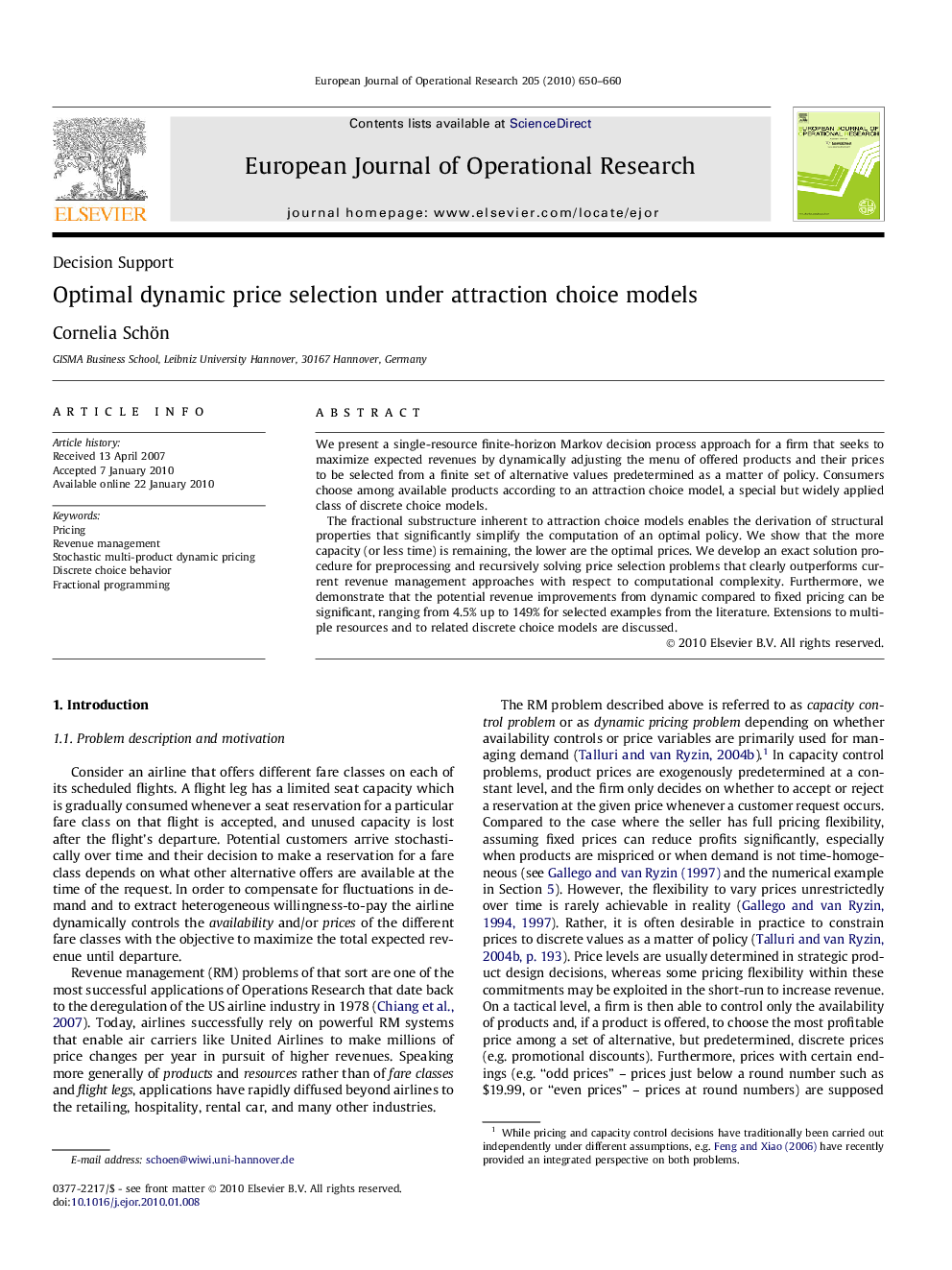| Article ID | Journal | Published Year | Pages | File Type |
|---|---|---|---|---|
| 481856 | European Journal of Operational Research | 2010 | 11 Pages |
We present a single-resource finite-horizon Markov decision process approach for a firm that seeks to maximize expected revenues by dynamically adjusting the menu of offered products and their prices to be selected from a finite set of alternative values predetermined as a matter of policy. Consumers choose among available products according to an attraction choice model, a special but widely applied class of discrete choice models.The fractional substructure inherent to attraction choice models enables the derivation of structural properties that significantly simplify the computation of an optimal policy. We show that the more capacity (or less time) is remaining, the lower are the optimal prices. We develop an exact solution procedure for preprocessing and recursively solving price selection problems that clearly outperforms current revenue management approaches with respect to computational complexity. Furthermore, we demonstrate that the potential revenue improvements from dynamic compared to fixed pricing can be significant, ranging from 4.5% up to 149% for selected examples from the literature. Extensions to multiple resources and to related discrete choice models are discussed.
